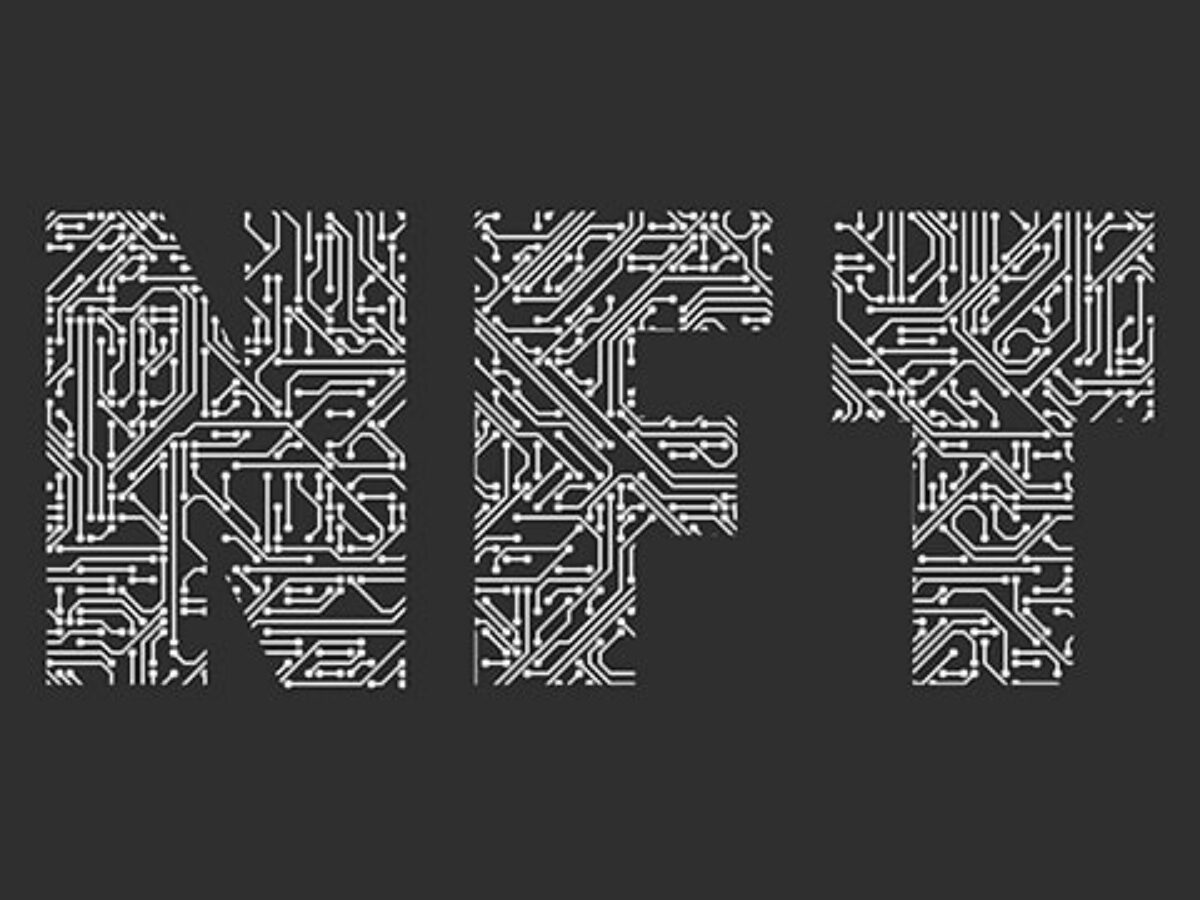Non-transferable tokens (NTTs) are described as a slight upgrade to the popular nonfungible tokens (NFTs). The crypto and blockchain industries continue to unleash additional and advanced technology. To increase use and productivity, the global crypto network is aggressively striving to offer solutions to every challenge faced in the industry.
For some time now, the blockchain sector has been battling many trust issues, mostly among the top stakeholders. Many false validations of a digital asset appeared on the blockchain together with other illegal activities that are related to the transferable tokens.
As the NFT and NTT worlds advance, many analysts wonder what mechanisms power these idealized innovations. How can NTT help revolutionize digital assets? Will the presence of soul-bound tokens promote ownership validation? Why are these tokens non-transferable? Do they offer any benefits?
Non-transferable tokens (NTTs) are described as non-transferable digital tokens that function as identity symbols in a decentralized society. As already stated, NTTs are upgraded versions of non-fungible tokens (NFTs). The key difference between these two innovations is transferability. Users can transfer nonfungible tokens but cannot send NTTs.
NTTs are also known as Soulbound tokens (SBTs). As their name suggests, NTTs are eternally bound to some wallet (soul).
The development of SBTs will guarantee credibility, trust, affiliations, and integrity on the Web3 network. These new NFTs would protect the reputation of most NFT projects. SBTs will store details about the owner’s certification, membership, and credentials.
Also, it can work as an academic certificate, CV, proof of attendance protocol (POAP), and a lot more. With the use of SBTs, users cannot trade off or buy their social status on the Web3 space.
Related: What Is Proof Of Attendance Protocol (POAP)?
How The Soulbound Concept Came Up
The Soulbound concept arose from a popular online game known as “World of Witchcraft”. Various in-game items are known as Soul-Bound items in the game. That is because gamers cannot trade these items after they pick them up. Players can just get these items by fighting and combating monsters. The developers created this ideology to encourage gamers to quest against the weird monster.
World of Witchcraft prevents gamers from buying powerful items with lots of in-game gold or from the marketplace.
Ethereum (ETH) co-founder Vitalik Buterin together with two other people conceptualized the idea of SoulBound NFT in a paper presentation that was titled “Decentralized Society: Finding Web3’s Soul.” The other founders of the SoulBound tokens project are E. Glen Weyl, an economist and technologist, and Puja Ohlhaver, a lawyer.
Before the proposal of the project in May 2022, Vitalik Buterin released some hints about these concepts in a blog post in January 2022. In that context, Soulbound Tokens (SBTs) have been said to be the tokens that might eventually change humanity. Recently, Buterin co-wrote a 37-page paper explaining the way Ethereum’s future will revolve around the ecosystem called “Decentralized Society: Finding Web3’s Soul”.
Moments after the release of the Soulbound tokens (SBTs) whitepaper, Idexo is alleged to have released a similar feat in April 2021. The innovation-dedicated NFT platform minted its non-transferable Early Adopter NFT on BSC, which is linked to the owner’s telegram username. Idexo added SBTs to its SDK (software development kit), letting users develop SBTs on different blockchain platforms.
Buterin and his fellow authors expounded on their vision for a future decentralized society (DeSoc) that is expected to eventually thrive on Soulbound Tokens (SBTs). SBTs have formed an integral part of the theoretical future that was made available in 2022. These tokens can help people earn partially according to their job and education history.
Related: Soulbound Tokens Could Soon Take Your Entire Identity To Web3 – Vitalik Buterin
Unlike the normal NFTs, SBTs are non-transferable, although people can revoke them in case they want to. They represent a person’s reputation and accomplishments, operating as a form of ‘extended resume’ based on the statement by Buterin.
The idea behind the Soulbound tokens is to enhance people’s social identities by keenly linking them with unique and non-exchangeable badges. These tokens might help in resolving some of the problems that affect decentralized finance (DeFi), including scams and theft.
How NTTs Operate
One might be wondering whether the operating mechanisms of non-transferable tokens differ from nonfungible tokens. The mechanism of Soulbound is like other NFTs except for the aspect of transferability. Particular souls or blockchain wallets can issue Soulbound tokens, keep SBTs and even assign self-certified tokens.
Unlike the NFTs, NTTs are transacted in a one-way direction where just SBTs developers can issue a token to the address of another soul. This transaction strategy consists of open verification of the SBT, issuers, and the end recipient.
For that reason, SBT is not available in any marketplace; it suggests that NTTs do not have a market value. Using NTTs, the public can validate the integrity of the association between these souls and the issuing bodies.
Benefits Of NTTs
There are various benefits linked to the latest version of nonfungible tokens. Like all the other developing innovations of blockchain technology, NTTs reduce trust issues, a huge threat to the transaction of NFTs. The trust issue is a huge bone of contention between the financial and business stakeholders; it is said to be one of the dark sides accompanying Web3 anonymity.
NTTs prove the ownership of an asset and go a long way in confirming the owner’s reputation. Web3 users can review the transactional history of a Web3 anonymous personality before engaging in any executed business transaction.
Related: What Are the Benefits of Investing in Web3 Stocks?
Other advantageous applications of non-transferable tokens (NTTs) include verification of work and experience of employment candidates and social identification on the decentralized network. The advantages of these new forms of NFTs might explode similarly to the utility of NFTs.
Use Cases Of Non-Transferable Tokens
The use cases of non-transferable tokens are many and can be readily applied across the decentralized sector. Nonetheless, it is appropriate to note that the prototype of these use cases of NTTs is yet to get implemented. Notably, the entire idea of NTT is paper-based. These are some of the use cases of non-transferable tokens:
- Non-transferable tokens (NTTs) can help solve issues about airdrops. At times, crypto whales collect a majority of the new project’s AirDrop preventing the entire community from benefiting from the drop. Soulbound Tokens can assist in narrowing the distribution of tokens to a particular wallet using the Souls details.
- Verification of ownership. NTTs would assist in tracking the originality of nonfungible tokens and other digital assets. Before the innovation, developers and artists must open their Instagram, Twitter, or OpenSea accounts to confirm the legitimacy of NFTs. They can now use Soulbound tokens to resolve the verification issue without needing to battle with unexpected happenings like the disappearance of NFT profile pictures.
- Sybil attacks protection. SBTs guard against the popular system risk of DAO coin voting. In a DAO setting, an individual can take full control of the system by buying 51% of the DAO tokens. Before transferring voting rights, a soul has to possess tokens on academic credentials, licenses, and endorsements from other Souls.
- Soulbound tokens are expected to make a revolutionary turn in decentralized finance (DeFi) lending, since most lending companies do not offer uncollateralized loans. Soulbound tokens will enable DeFi protocols to offer uncollateralized loans by leveraging on the soul’s interaction.
- Another use case of non-transferable tokens is digital CV. SBTs can serve as unique digital CVs that are publicly validated by past employers and academic institutions. Apart from that, candidates can no longer present other people’s CVs.
- Academic institutions can benefit from these non-transferable tokens to award digital proof of attendance and academic certifications. That will ease the verification of the work candidate’s credentials.
- Health data record. SBT can offer solutions to patients who regularly change their doctors or health providers. This will slowly replace the use of paperwork for keeping a medical history of the patients.
Related: Op-Ed: Will the Metaverse Save the Healthcare Industry?
Bottom Line
The blockchain network continues to solve all challenges encountered in Web3. The blockchain space has tweaked most initial innovations to resolve distinct challenges. Including non-transferable tokens in the Web3 space will resolve personalization and trust issues.
Upon full exploration, non-transferable tokens will thrive beyond the current periscope. There might be an outburst of SBTs use cases after Ethereum implements them on its robust blockchain. Nonetheless, complications may arise from many experiment use cases of Soulbound tokens.
Although SBTs are non-transferable, they do not resolve privacy issues. Instead, it exposes some sensitive details of the owners. In that case, SBTs fault the cryptographic anonymity provided by blockchain technology.











